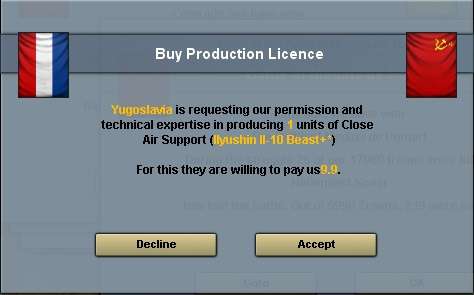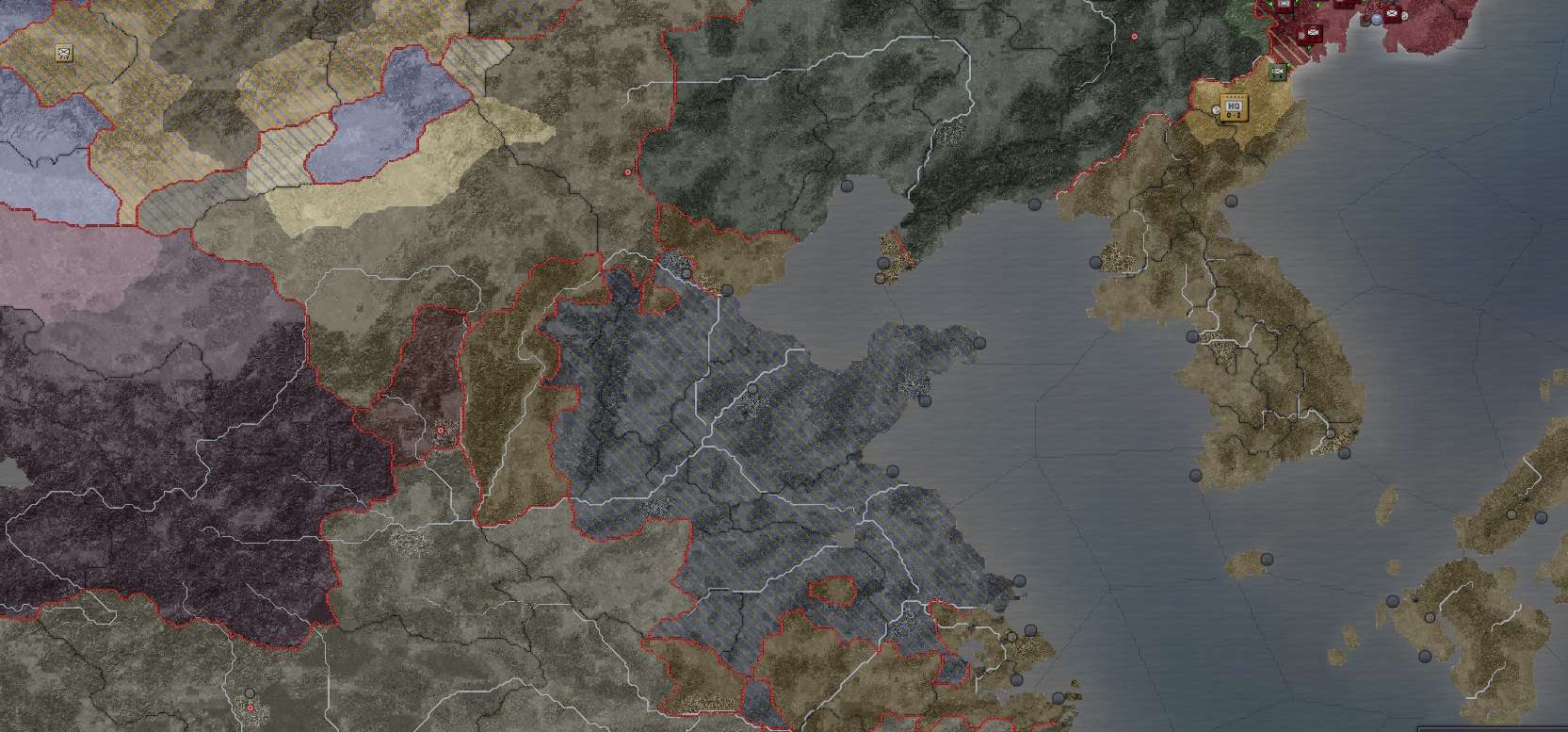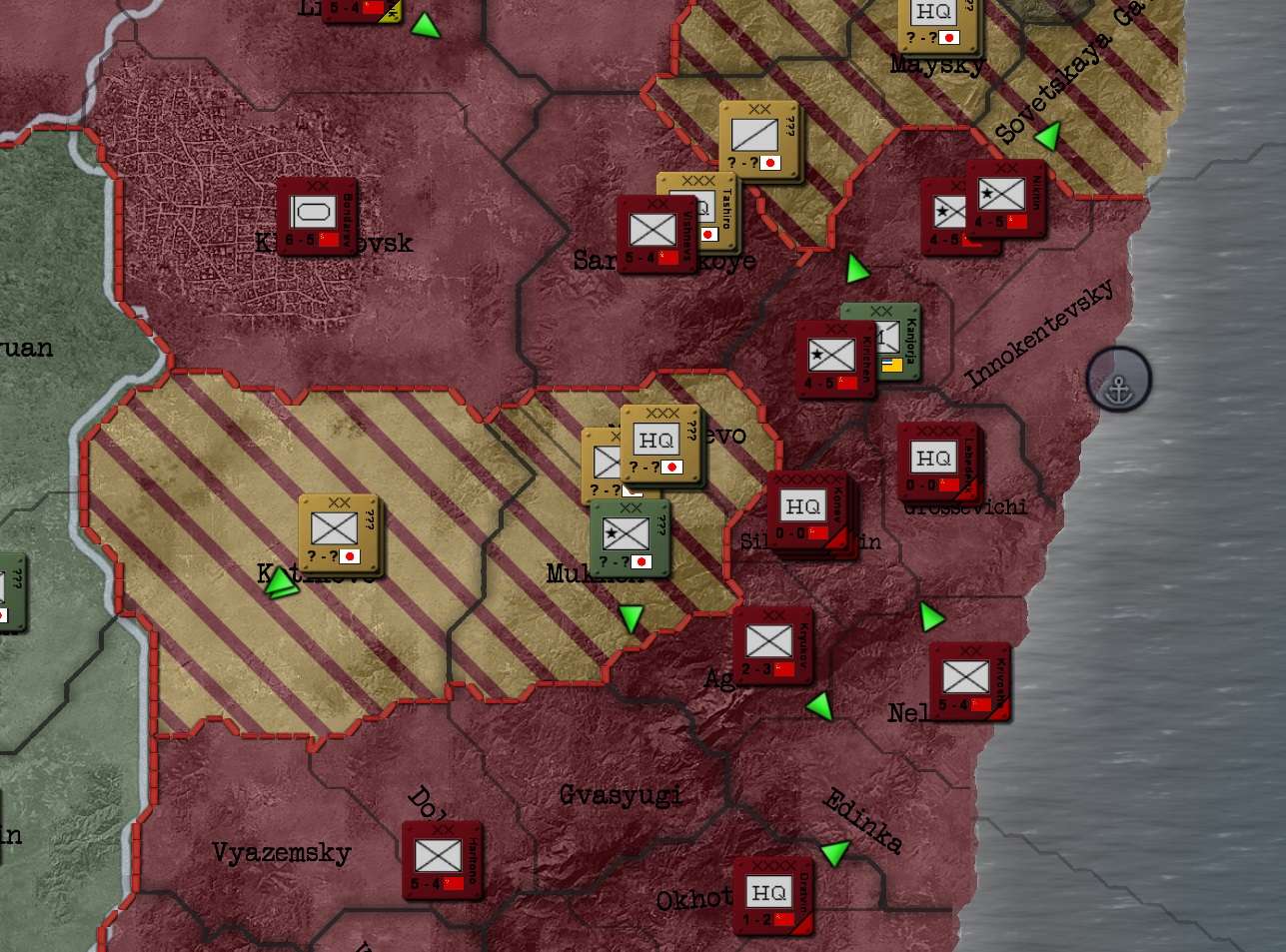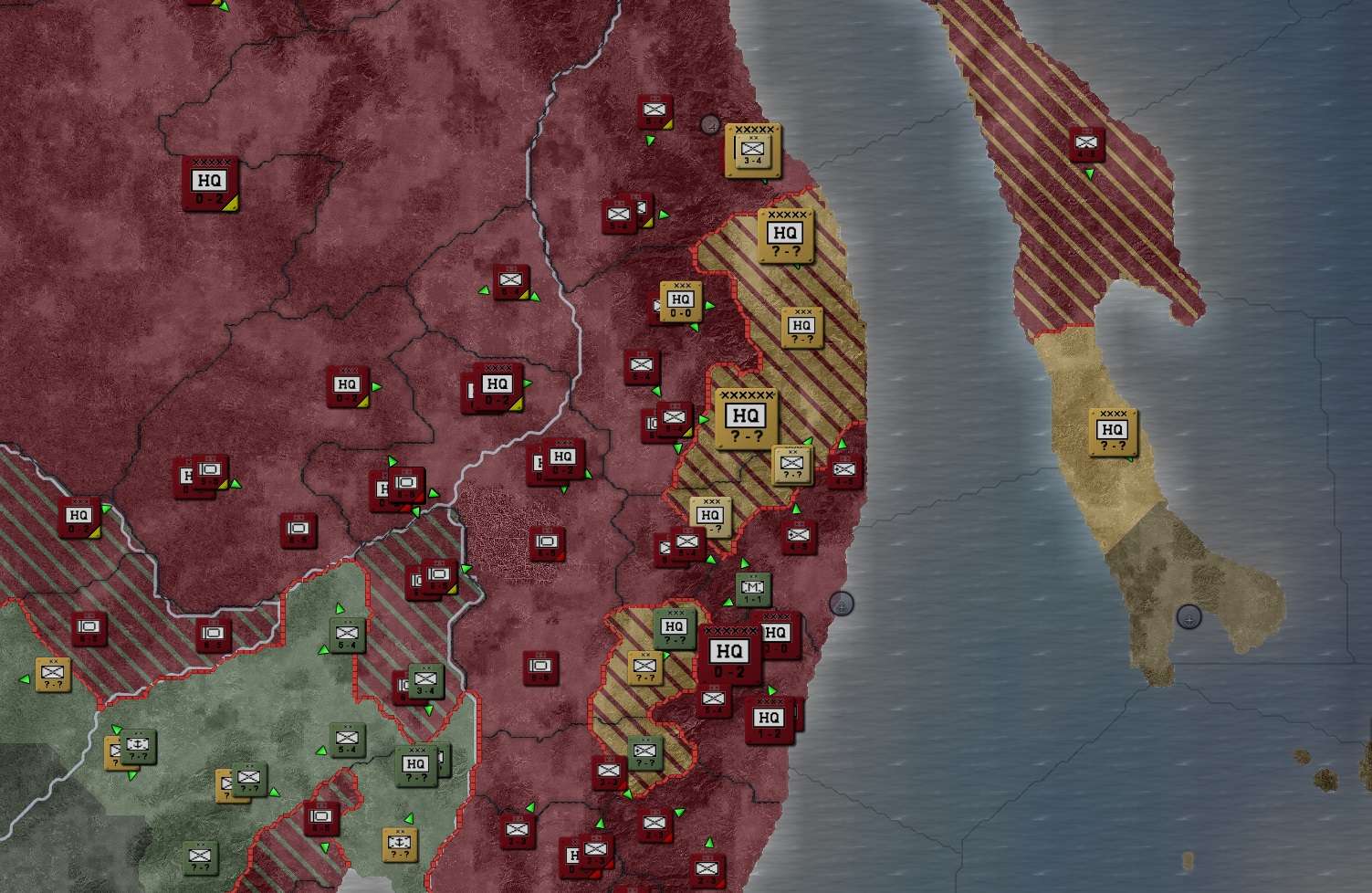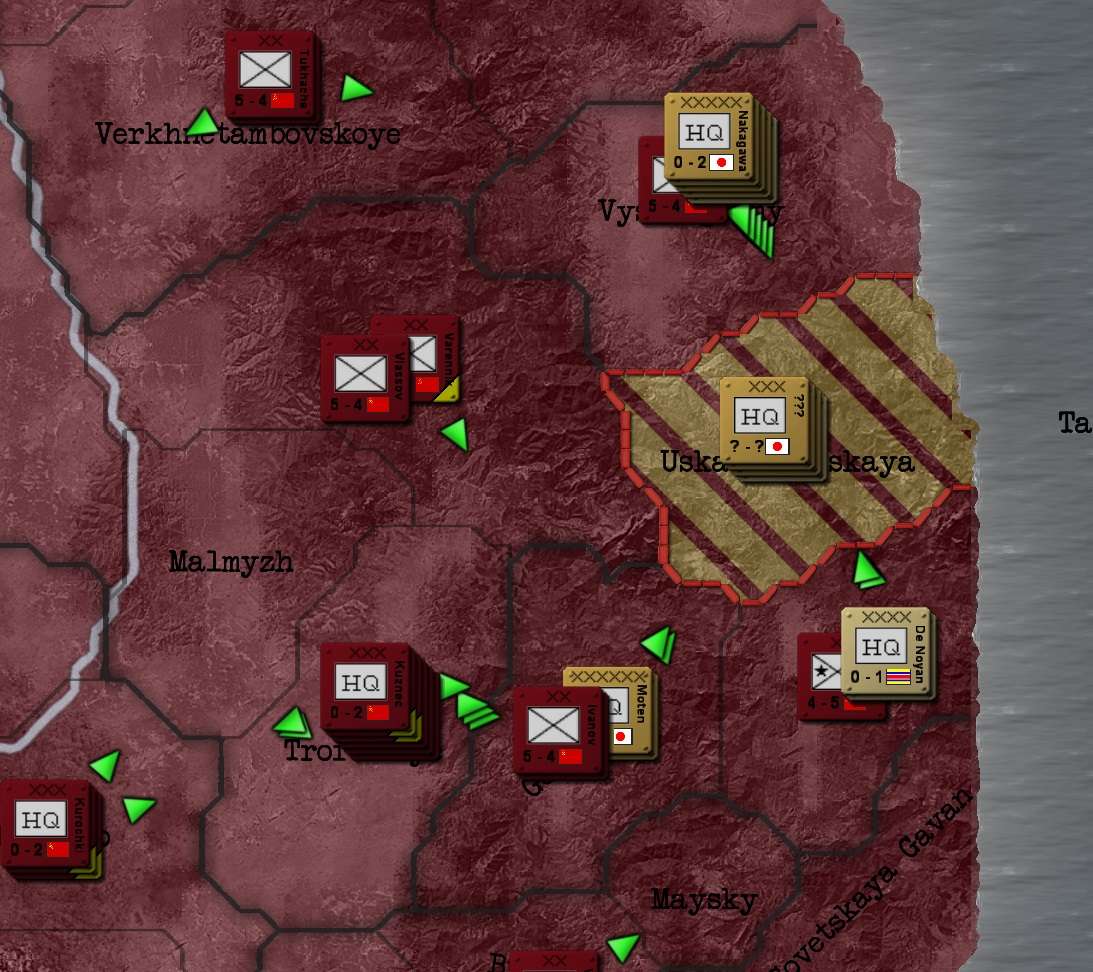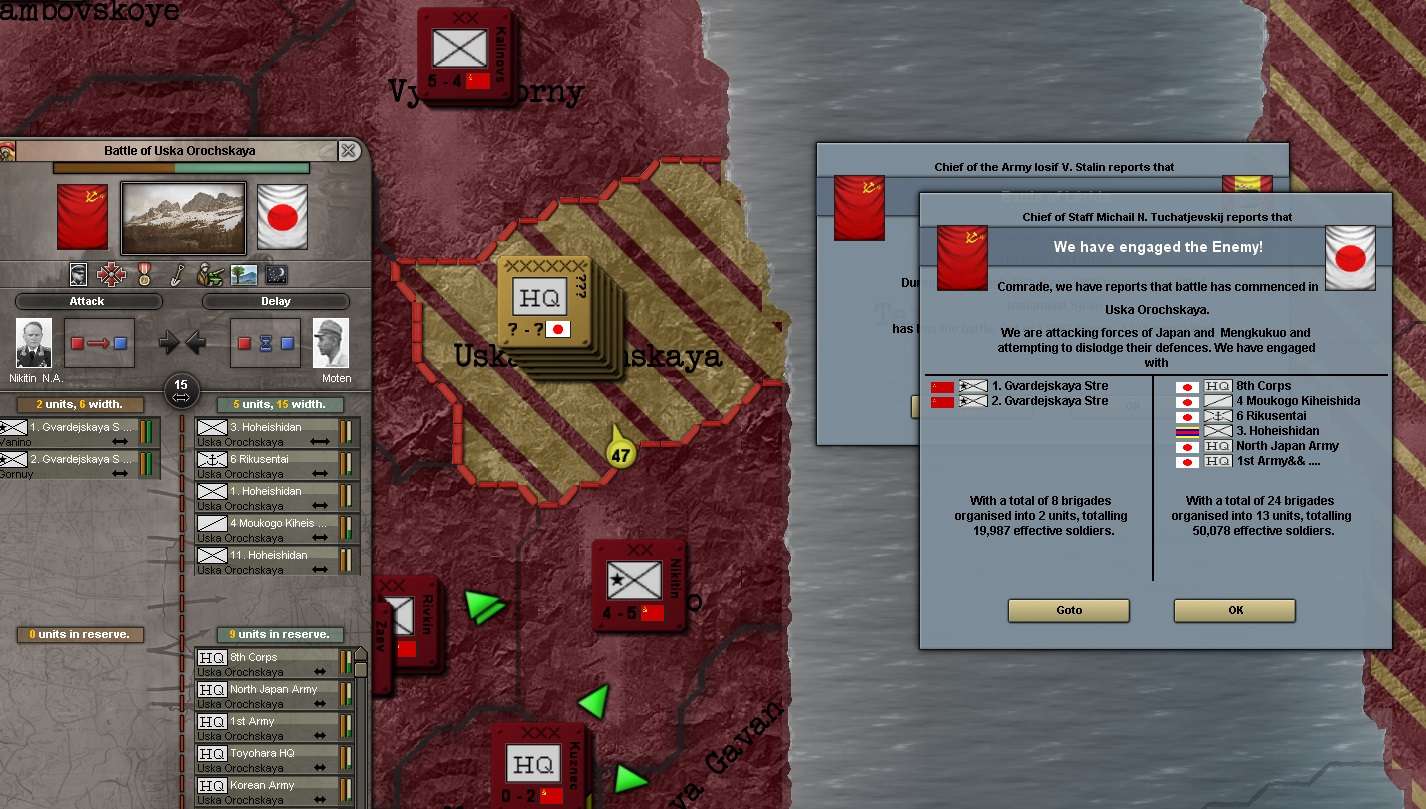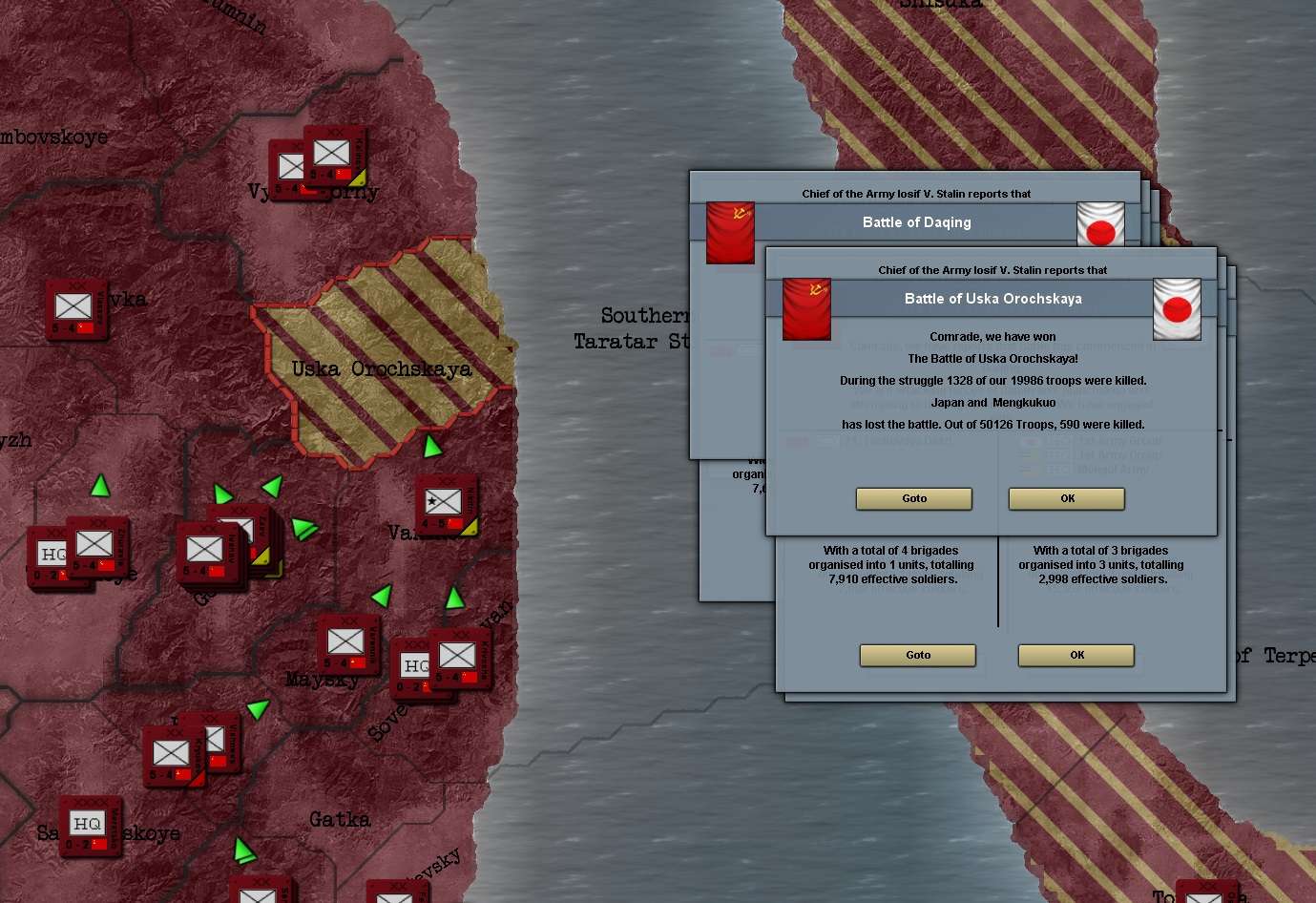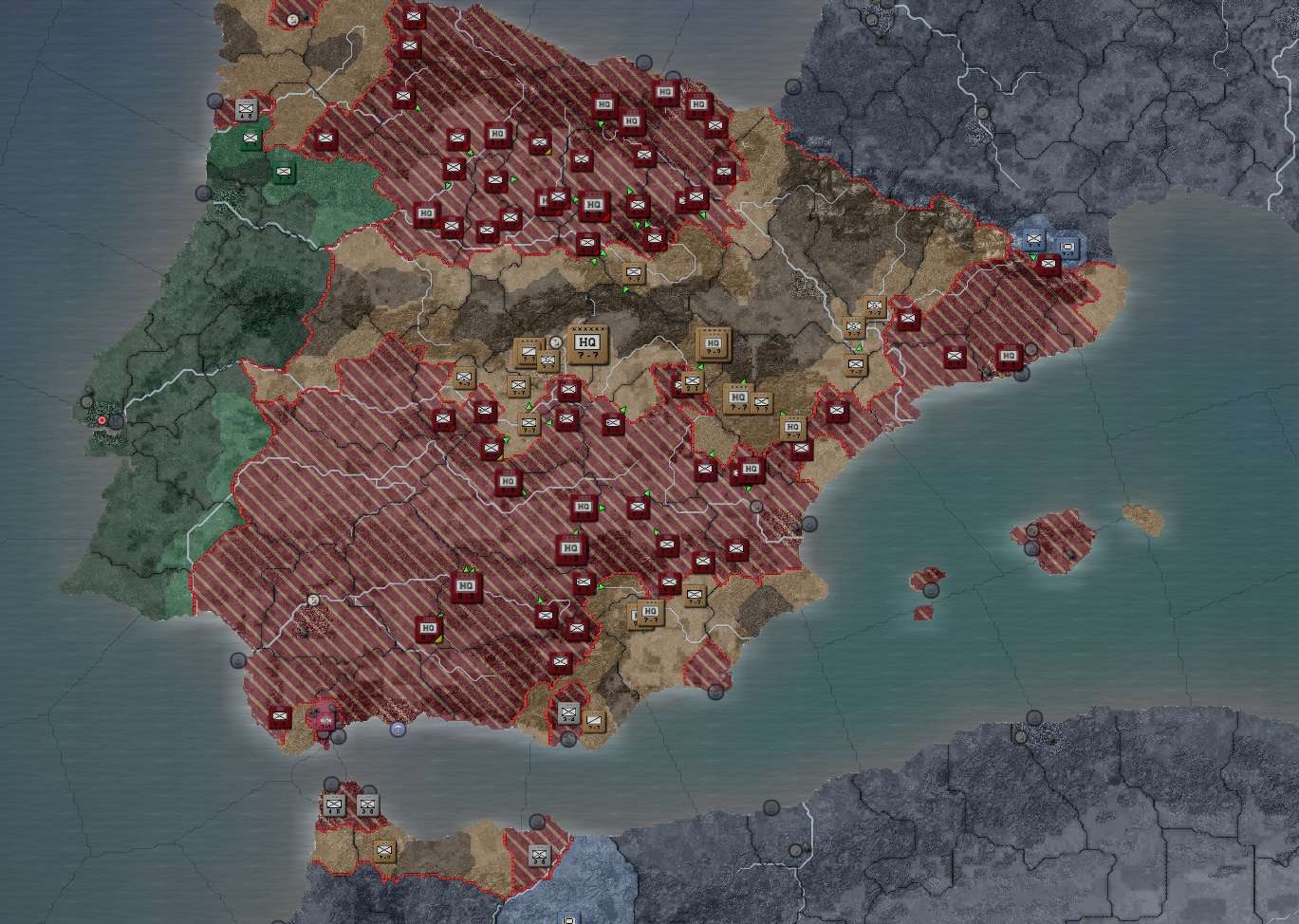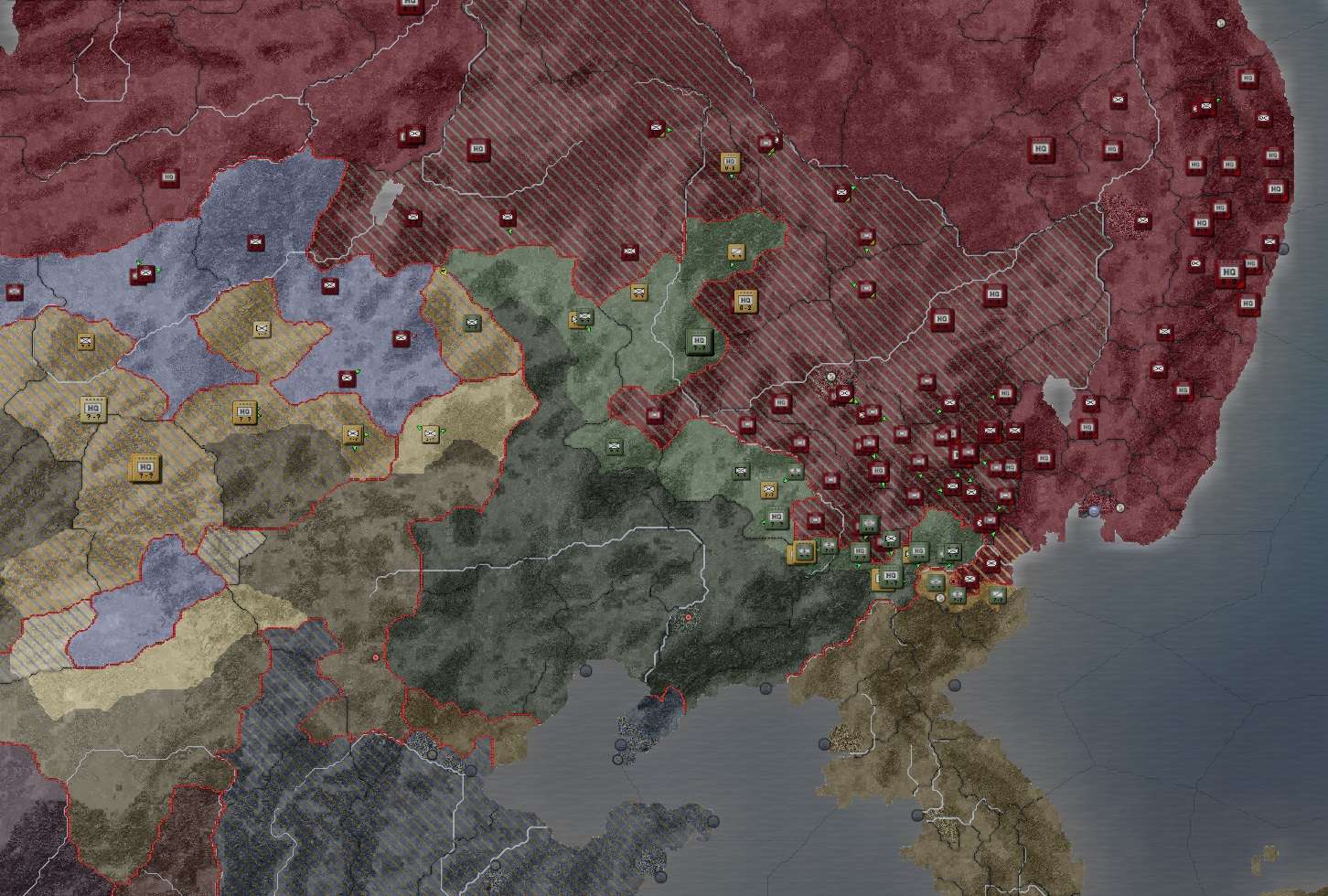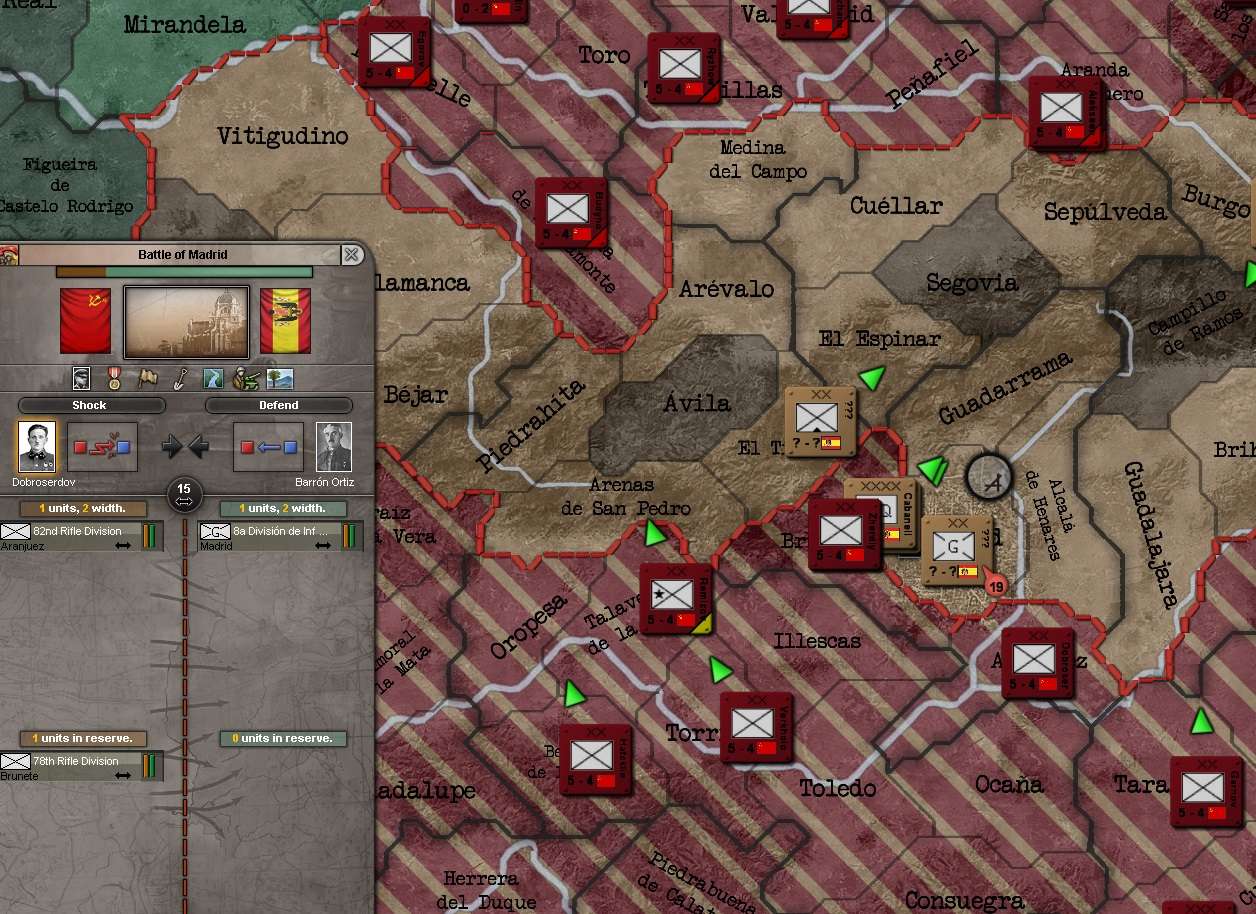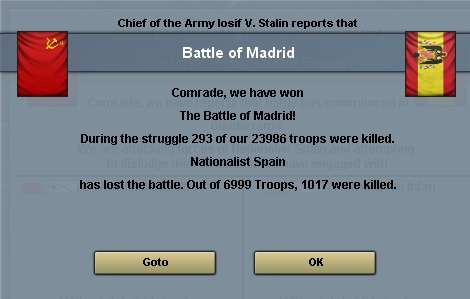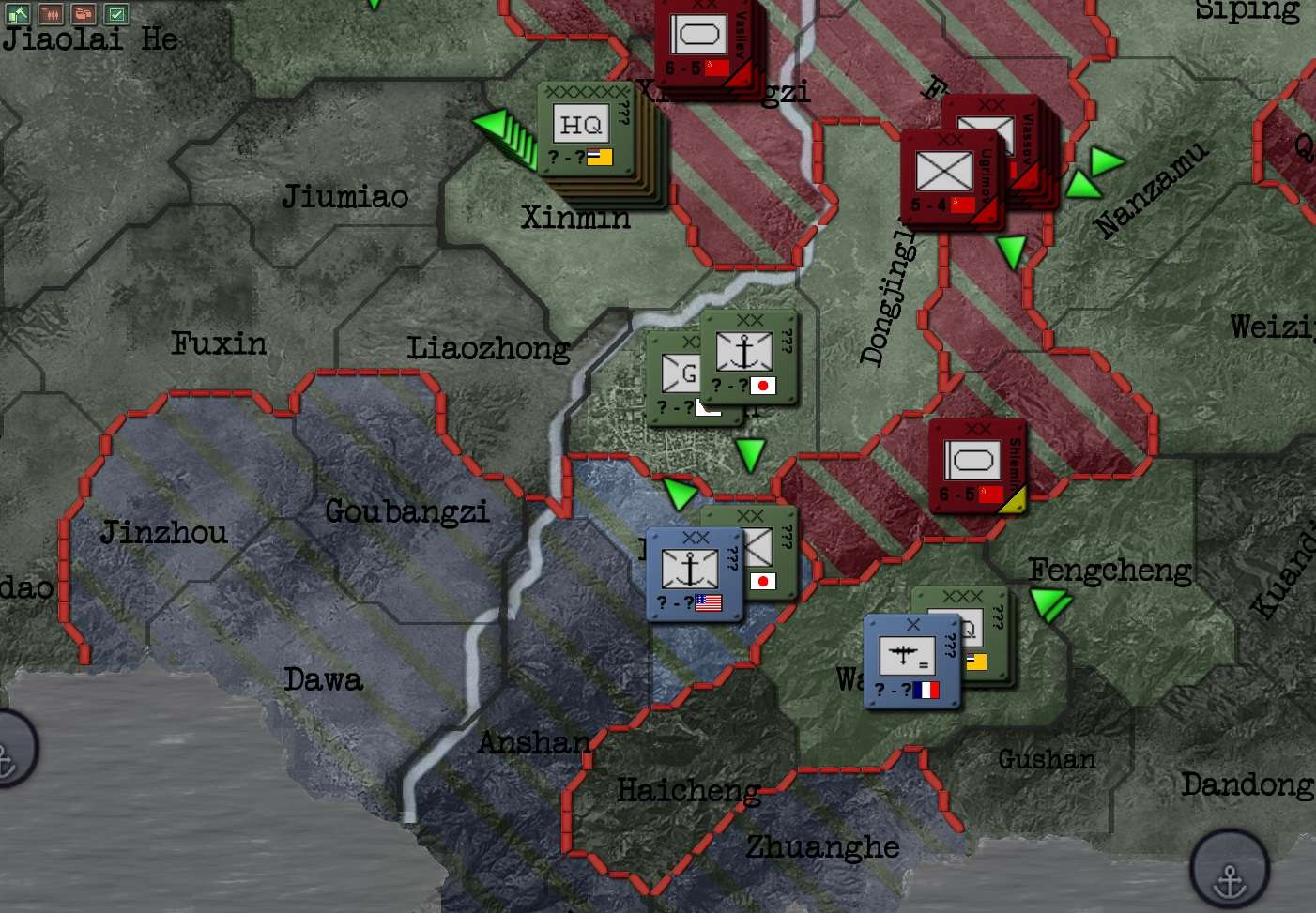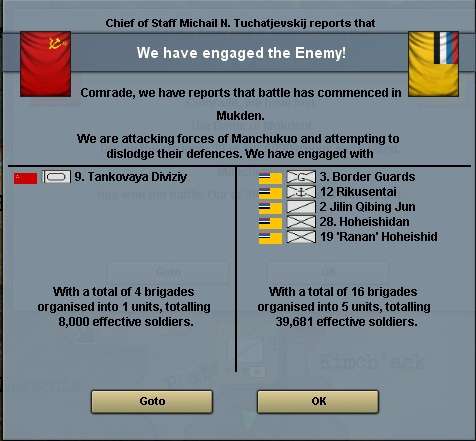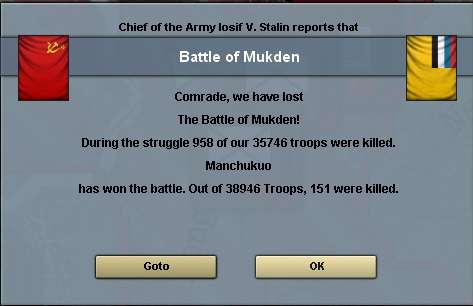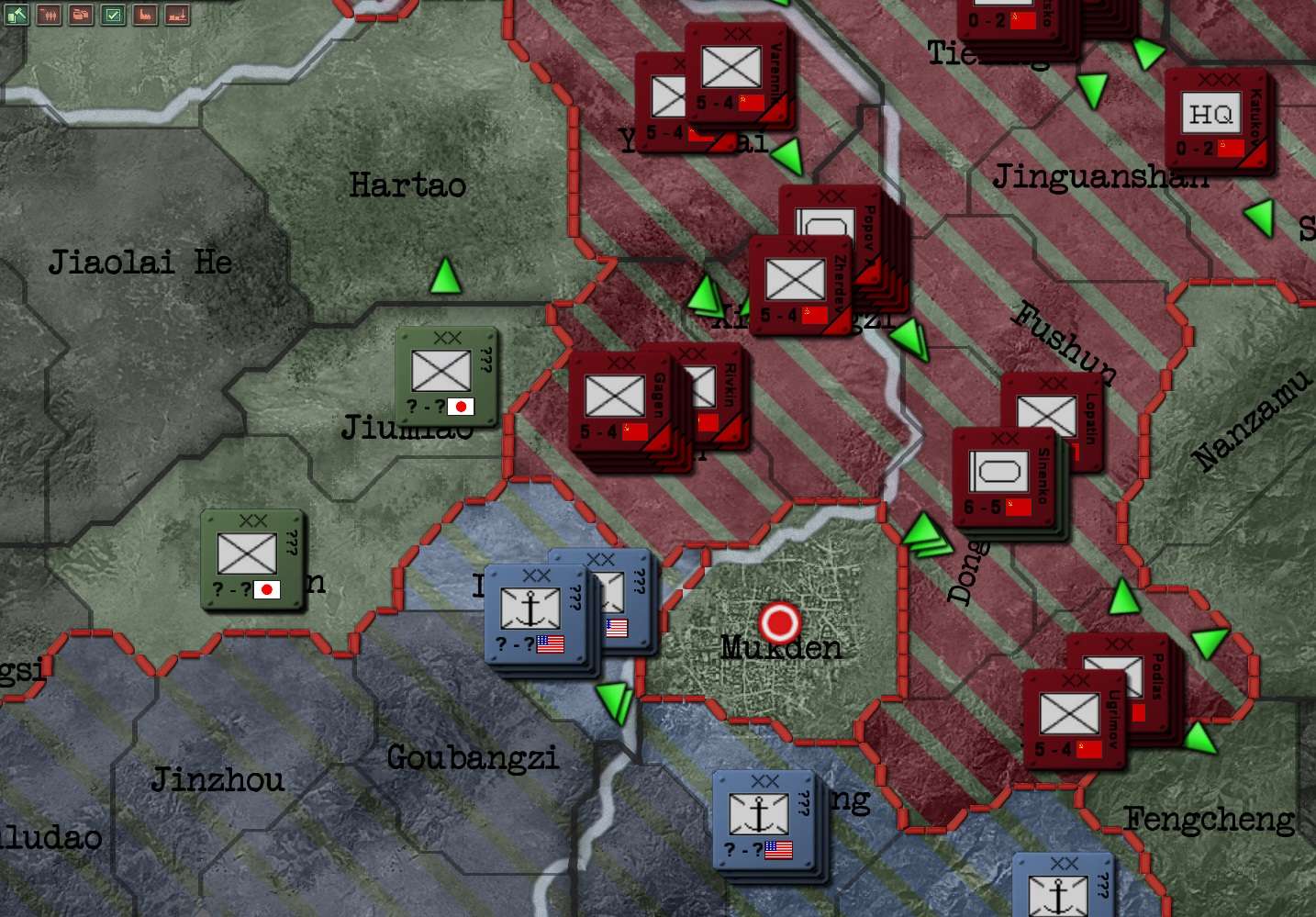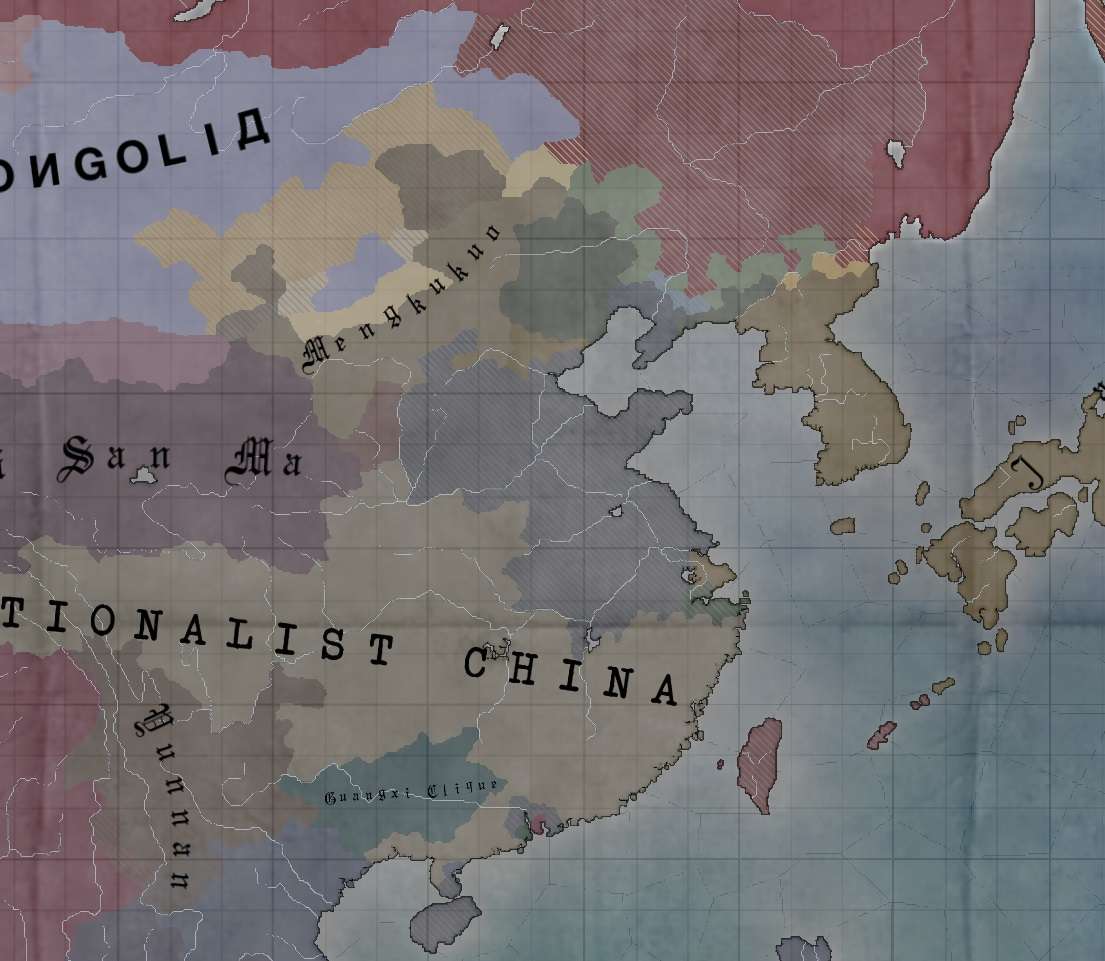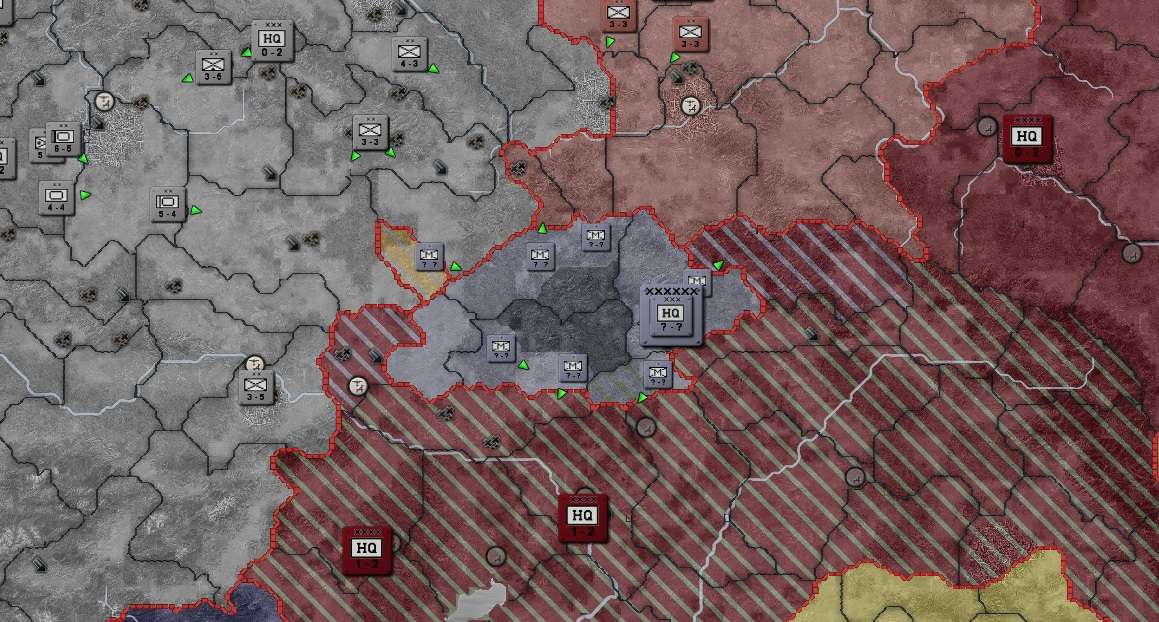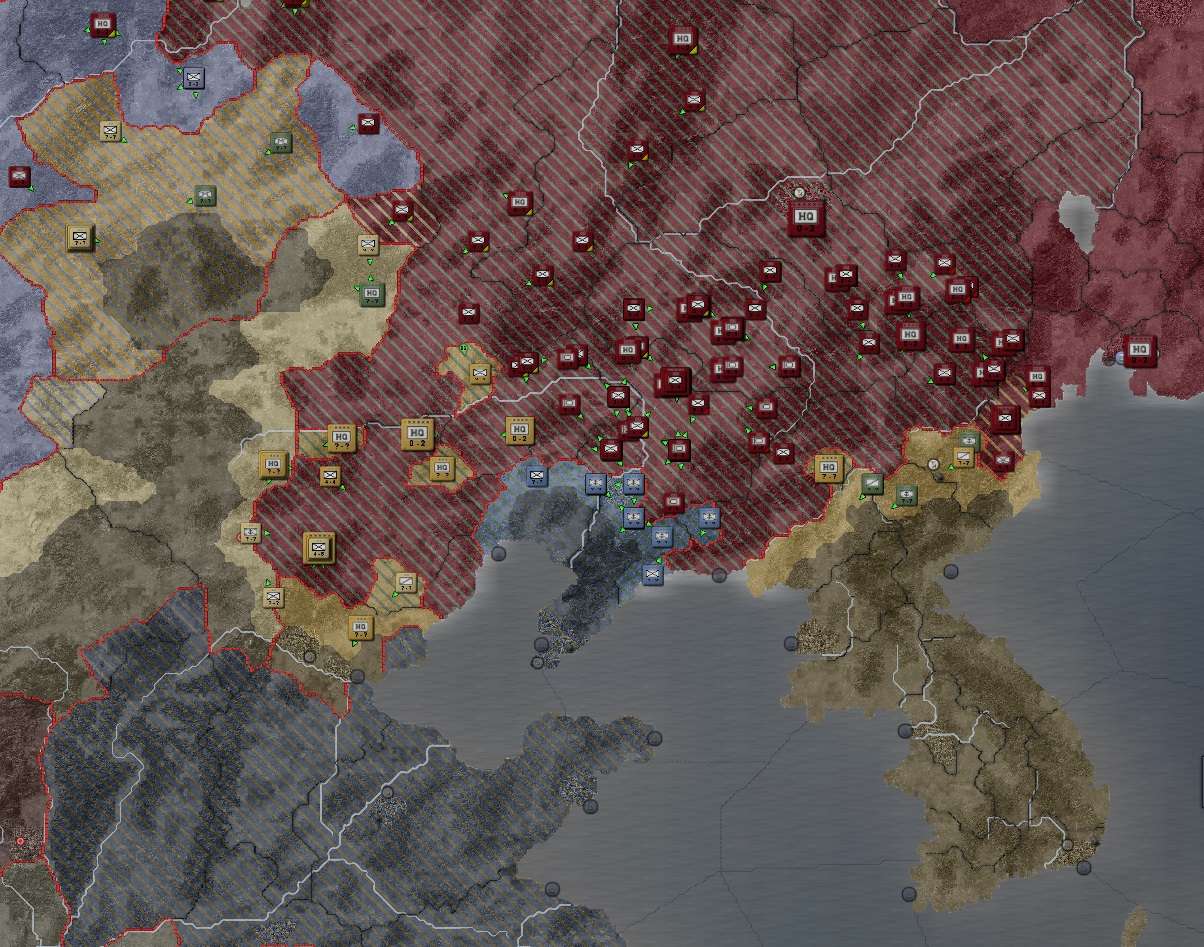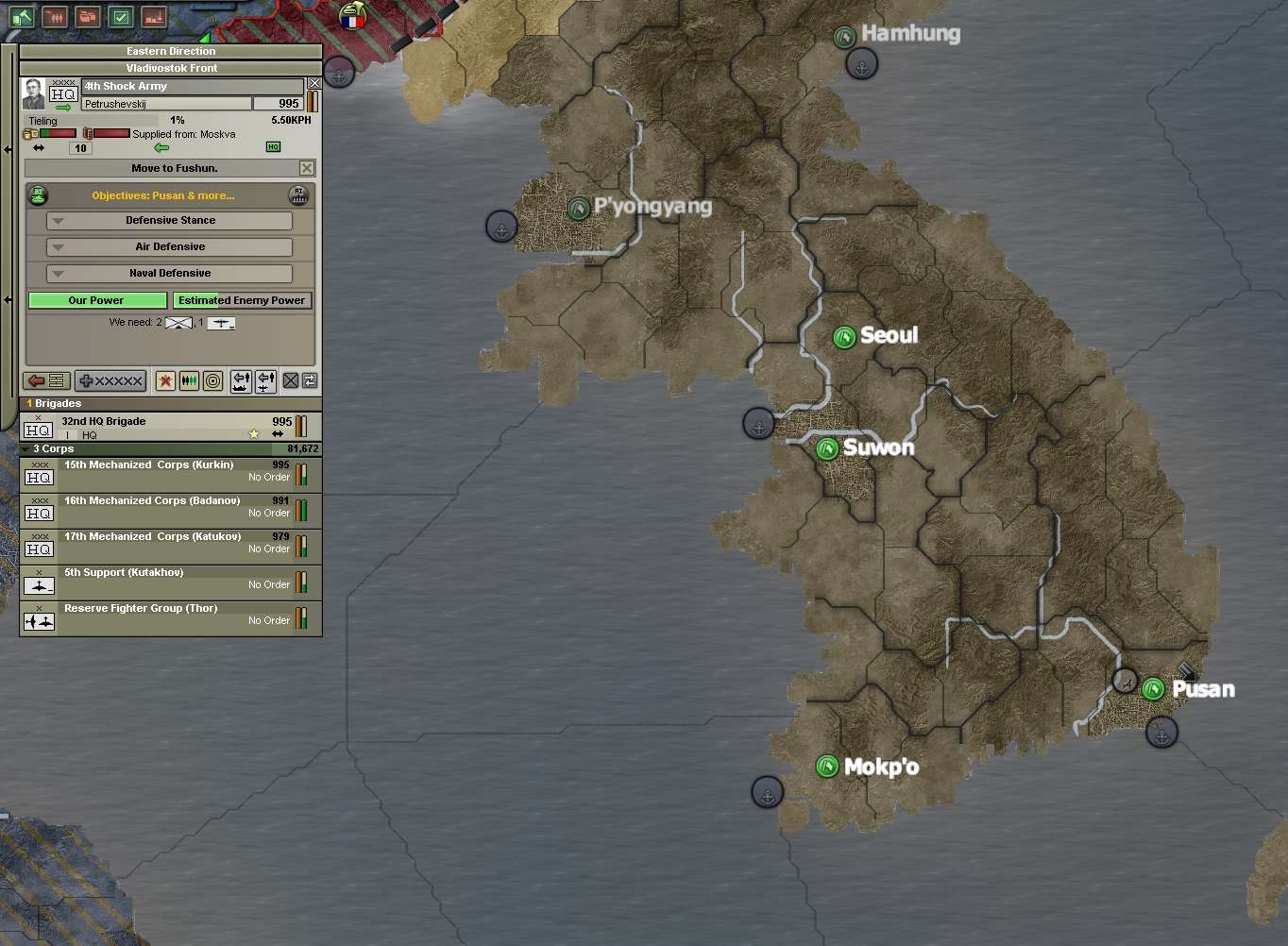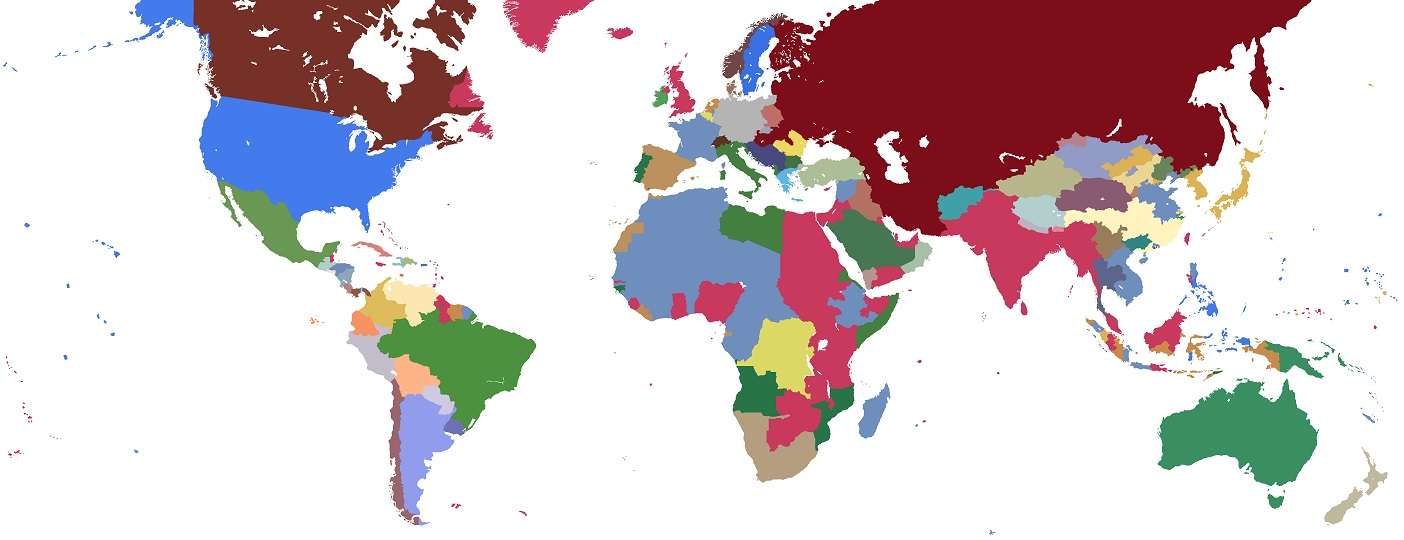Chapter 27: The war is over
Before I begin this, our final update, I'd like to thank everyone for reading and participating!
17 July 1942, Moscow
There were smiles all around the large conference room table used by the Politburo. Japan had finally surrendered! Perhaps nobody was as tired (or relieved) as the People's Commissar for Foreign Affairs, Anastasia Petrova, who insisted on personally conducting the negotiations herself. The negotiations were conducted in Seoul, Korea: a city completely controlled by Soviet forces, to further drive home the point that Japan had no serious hope. True, the Home Islands had not been invaded (and the Soviets did not really have the capacity to invade them, although that fact was kept secret from the Japanese). However, the defeat of Mukden on 2 July 1942, completely surrounded and isolated by an international coalition, in less than 24 hours signaled to the Japanese that, if the Soviets chose to, they could very easily drive Japan out of all of her continental possessions.

Manchukuo surrendered just a few days later, with the Soviets receiving the lion's share. The cities of Liaoyang and Mukden, initially occupied by the Allies, were exchanged for Soviet promises not to invade Greece.
The second stage of the operation was to race down the Korean peninsula before the French interfered. Fourth Shock Army, led by General Petrushevskii, prepared to do exactly that.
The Soviets had one ace up their sleeve, something that the Japanese did not expect. While the Japanese guarded the border between Korea and Manchuria, or tried to, four divisions of elite Soviet paratroopers dropped into the city of Seoul, capturing it and driving out the malnourished and poorly trained garrison.
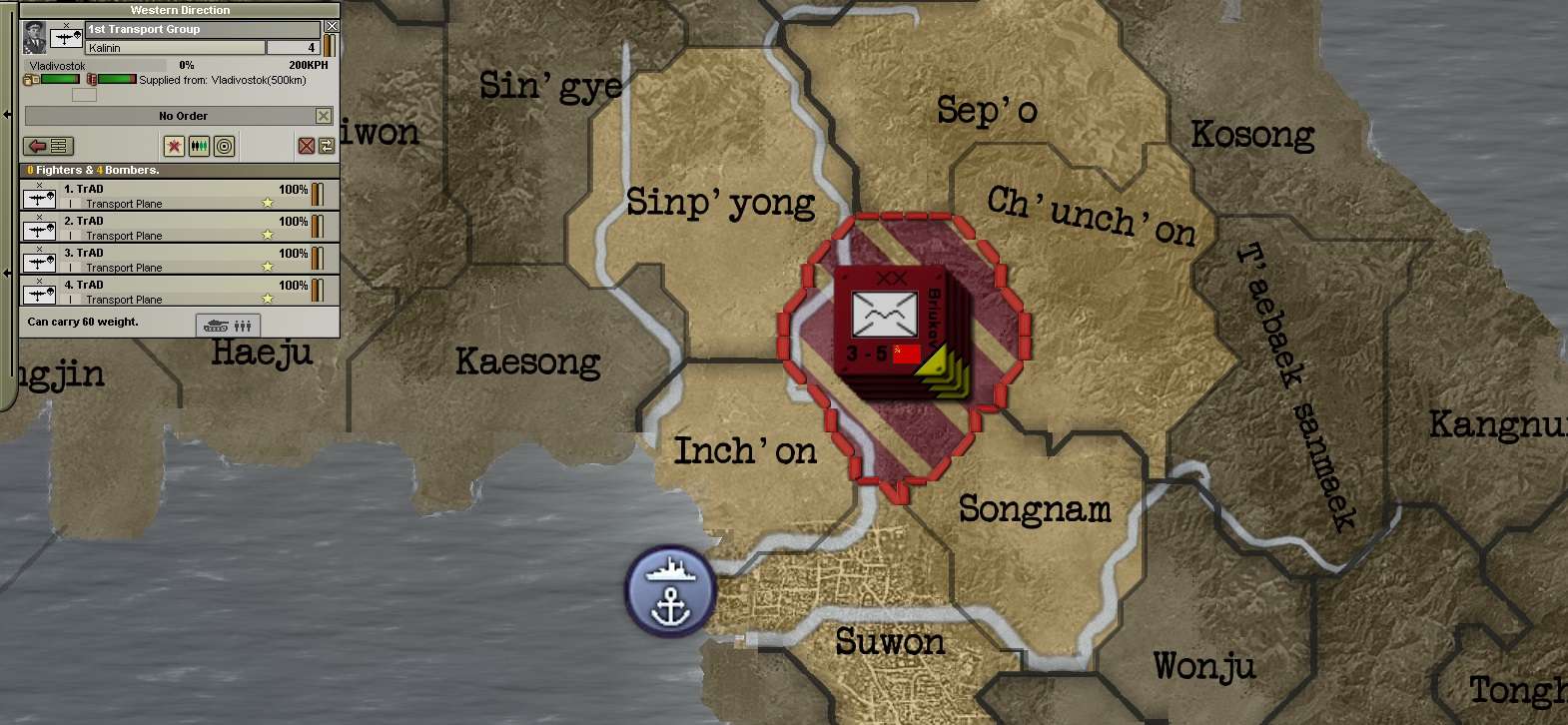
This new form of warfare caught the Japanese by complete surprise, and posturing by Petrova convinced them that entire squadrons of paratroopers could descend on Japan in a matter of hours if the Japanese did not surrender. Ultimately, the negotiations were very quick. Korea would continue to be held by Japan, but Seoul would be garrisoned by Soviet troops until the remainder of the agreement was fulfilled. Apart from Korea, Japan surrendered all other continental possessions to the Soviets (or to whomever occupied it at the time). The IJN would be scuttled, in its entirety, and Japan was forbidden from building new warships larger than a destroyer for 20 years, upon which time the status could be reviewed. Finally, all persons responsible for instigating the war had to be removed from power. The Allies were frozen out of the negotiating process, and Japan had no choice but to agree.
The Politburo designated 17 July 1942 as День победы (Day of Victory) and a national holiday. The celebrations ended up lasting well over a week. The party atmosphere did have one tragic moment: the death of Feodor Sokolov, the People's Commissar for Foreign Intelligence. His failure to secure an overthrow of the Greek government, coupled with a proportionate increase in his alcohol intake, caused liver failure.
Epilogue: The fates of the most important Politburo members and other significant players in our revised timeline
Joseph Stalin: The General Secretary held his position until death in 1953, but over time, he found himself forced to share power. He was unable to position himself as deserving all, or even most, of the credit for the Soviet victory. Nonetheless, he remained beloved in the Soviet Union, receiving an honored place next to Lenin in Red Square.
Mikhail Tukhachevsky: Tukhachevsky retired from the Red Army in 1945 and was chosen as the new Chairman of the Council of People's Commissars. His personal and public cachet restored that position's authority to its previous heights under Lenin. The most significant reform under the Chairman was the fusion of the Politburo and Sovnarkom into one body, effectively negating Stalin's power as General Secretary and reducing that post's importance to a purely administrative role. Members of the new Politburo (which retained the name it held in World War II) were chosen collectively. Tukhachevsky resigned as Chairman in 1955, but remained very active in Soviet politics in a variety of roles until his death in 1987.
Nikolai Kuznetsov: The biggest naval hero in the history of Russia, Kuznetsov was given a seat on the Politburo in 1946 and held the post of People's Commissar of the Navy until his death in 1974. When the Soviet Union commissioned its first aircraft carrier in 1948, it was named the
Kuznetsov in his honor.
Nikolai Vatutin: (
Davout) Elevated to Commander-in-Chief of Stavka upon Tukhachevsky's retirement, Vatutin continued to innovate throughout the remainder of his career. Under his leadership, the Red Navy was expanded to become the premier fighting fleet in the world, while the Red Army and Air Force remained cornerstones of Soviet defense. Vatutin's crowning achievement was the launching of the first man into space in 1951 and the first man on the moon in 1959. Vatutin retired from the Army in 1970 at the age of 69 and retired to his dacha outside Moscow. He was one of Tukhachevsky's pallbearer's in 1987; he himself survived until 1995.
Andrei Zverev: (
Dadarian) The People's Commissar for Defense continued to hold that role until Stalin's death in 1953, at which point he was named head of the Comintern and chief liaison between Moscow and the other Communist nations throughout the world. Zverev's tireless efforts saw Communism spread to Latin America shortly after the incorporation of Cuba as the 51st state in the USA. By the end of the 1950s, a dozen Latin American countries had Communist parties of significance. In 1963, he returned to Moscow and was named Deputy Chairman of the Politburo. Although Zverev's cantankerous nature prevented him from ever earning the top spot, his death in 1976 was one of the best attended in Soviet history, featuring mourners from more than 75 countries.
Anastasia Petrova: (
Sakura_F) In grief after her husband's death, Petrova swore to never re-marry and threw herself into her work. Served as People's Commissar for Foreign Affairs until Tukhachevsky's retirement in 1955, at which point she held the role of Commissar for Foreign Affairs and Chair(woman) of the Politburo. She retired from public life in 1981 as one of the beloved people in the history of the Soviet Union; only the statues of Tukhachevsky and Vatutin in Red Square are more visited on a yearly basis. Her son, Stanislav, served as Commissar of Defense under his mother and saw the elevation of the Soviet nuclear weapons program to first in the world, although he refused to consider their use under combat circumstances. She died in 1993.
Aleksandr Yakushev: (
red_KLG) Served as People's Commissar for Education until Stalin's death, when he became General Secretary. Yakushev's administrative brilliance, combined with his unswerving loyalty to the Soviet Union, made him the perfect replacement for Stalin. Yakushev held that post for five years, when he was named People's Commissar of the newly reunited Committee for State Security. Yakushev held that post until his death in 1967.
Georgy Malenkov: (
Jack LEagle) The People's Commissar for Finance succeeded Sokolov as People's Commissar for Foreign Intelligence. His greatest achievement was a coup in France, the largest continental power not to be part of the Comintern, for which he was awarded a clandestine Hero of the Soviet Union. Unfortunately, Malenkov was killed trying to do the same thing in the United Kingdom in 1958. His last act was to see the merger of his agency with the internal security organs in an effort to strengthen Soviet intelligence capabilities.
Oleksandr Smilyvyўenko: (
DensleyBlair) In Stalin's waning years, the People's Commissar for Justice began to discover some of Stalin's original plans for the Soviet Union. Horrified, he brought the information before a closed session of the Politburo. The Politburo ultimately decided not to act on the information, as tarnishing Stalin's memory was something none of them wished to do. Smilyvyўenko agreed, but wrote a book to be published upon his death about the "true story" of Stalin. Smilyvyўenko replaced Yakushev as General Secretary in 1958 and Zverev as head of the Comintern in 1963. His deputy at the Comintern, an idealistic young man named Yuri Andropov, discovered the book and had it burned before it could be published. As for Zverev, failing health made his tenure as head of the Comintern a brief one; he died in 1966 in Paris.
Leonid Rokossofsky: (
Andre Massena) The last truly unabashed Stalinist, Rokossofsky did everything he could to destroy any records on Stalin he could access at KGB headquarters. He and Vyacheslav Molotov were the keynote speakers at Stalin's funeral, and Rokossofsky wrote some very popular but wildly inaccurate biographies of Stalin. Upon the death of Malenkov in 1958, Rokossofsky tried to become the head of the new KGB, but he was outmaneuvered by Yakushev. The Pole returned home shortly afterwards and wrote three books a year attacking various members of the Politburo for "not giving Comrade Stalin the respect he deserved." He died in a Warsaw bar defending the honor of Stalin in 1968.
That will do it for this AAR! I hope to be announcing my next project soon (as soon as our winner decides) and will do so here. I hope you enjoyed the AAR!
Here are a couple of world maps for your viewing pleasure (these are from 1 July 1941):
